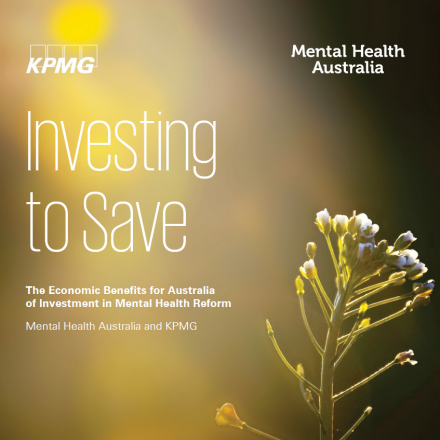CEO Update - Budget week in Canberra can be quite frenetic
As Budget day approaches, there is usually a mixture of excitement and dread that builds among those with an interest in budget outcomes – excitement that maybe this budget will be the one to allocate much needed resources; dread that maybe this year will be the one that takes away the resources so vital to a particular project or program.
I do not intend to re-hash our budget summary here; if you somehow missed it you can access it here, along with the video that Minister Hunt so openly agreed to appear in, so he could provide an update on the budget “direct and unfiltered”.
I would like to reflect a little on where we are and where the budget leaves us.
We were delighted that Minister Hunt allocated resources to start to close the emerging gap in psychosocial supports that is arising with transition to the NDIS. Delighted too that he did so in such a way as to bring state and territory governments to the negotiating table – to match Commonwealth funds.
This is a very big shift, because it is the first time the government has given concrete recognition to the problem, and has taken responsibility for addressing it. We still have a long way to go, but this represents a very significant breakthrough.
But what comes next?
Even after this significant injection of funds, there is a lot left to do in mental health reform. The 2014 Review of Mental Health programs conducted by the National Mental Health Commission laid out an extensive agenda for reform, and so far we have only touched the sides.
Mental health spending seems stuck at about 5% of the total Commonwealth Health Budget, and has been stuck there for many years. And yet, mental illness and drug and alcohol misuse account for about 12% of the total disease burden, and about 24% of years of life lost to disability.
Year by year budgets help, but they have not addressed this glaring gap.
It was encouraging, at the Health Minister’s post budget briefing at Parliament House this morning, to hear Minister Hunt reconfirm his commitment to including mental health as one of the four pillars of his long term plan for national health reform. It was encouraging too to see him list mental health as a priority in the next (ie post budget 2017) wave of his reform agenda.
As a sector I think that leaves us with three challenges:
- to do all we can to bring state and territory governments to the negotiating table,
- to build confidence by doing all we can to demonstrate that mental health reform is possible and that outcomes can be improved, and
- to do all we can to be unified in our efforts to achieve future reform and investment.
Budget 2018 will be upon us before we know it. Let’s start to prepare the way for the ongoing and long-term reform that we all hope for so desperately.
Warm regards
Frank




